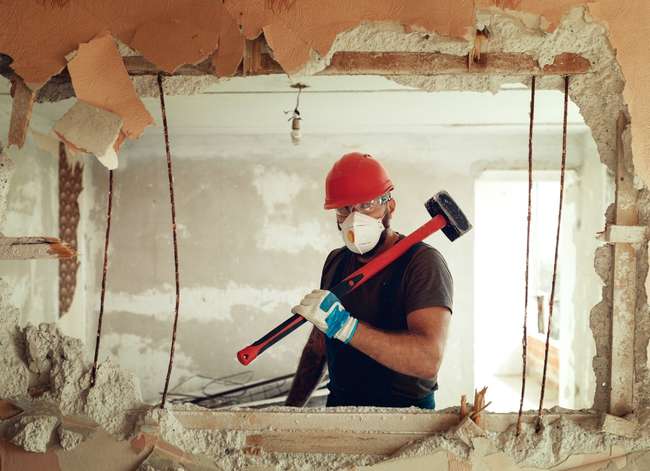We may earn revenue from the products available on this page and participate in affiliate programs. Learn More ›
How to Prepare for a Smooth Demolition

For homeowners planning a DIY renovation, demo day is one of the most exciting and stressful parts of the process. Yes, it’s fun and therapeutic to smash drywall, toss old fixtures, and rip up flooring—but it’s also labor-intensive and potentially dangerous work, especially if there’s no plan in place.
As someone who recently undertook a full-home DIY renovation, I learned (at times, the hard way) a lot of valuable lessons about preparing for and executing a successful demolition. If you’re getting ready for demo day in your home, here are 10 tips to help you plan ahead and mitigate any potential issues you may face along the way.
Relater: Where to Live When You Renovate
Come up with a realistic plan and timeline.

The amount of time and effort it will take to complete the demolition phase of a project will vary depending on the existing space and how much of it needs to be ripped out. It can be difficult to assess how much work is involved if the property is older or was built from uncommon materials—you never know what’s behind those walls! Don’t be too ambitious about what you’ll be able to accomplish in a single demo day; instead, leave a little flexibility in your schedule for some unexpected snafus or delays.
Ask friends and family for help.
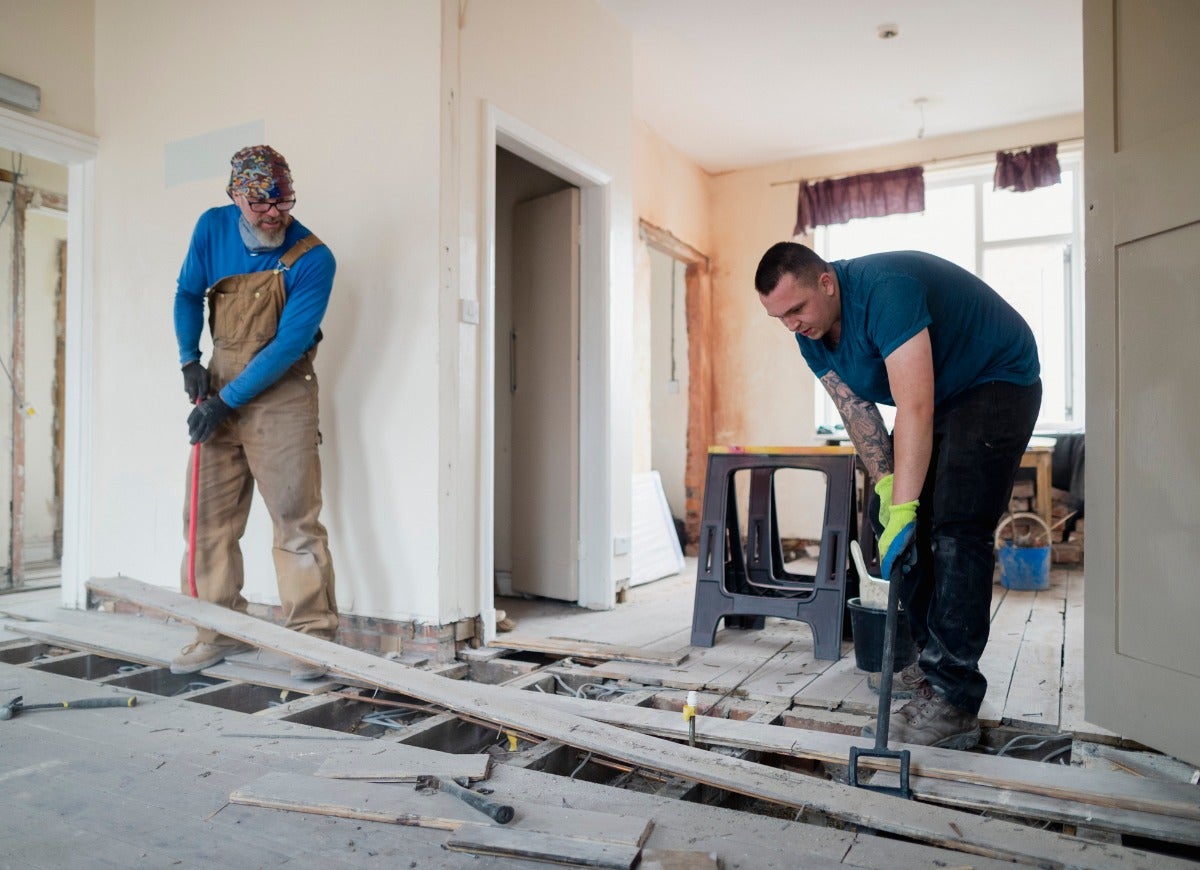
Demolition goes a lot faster with more hands on deck. Enlist the help of some trusted family members and friends who are handy with a sledgehammer and don’t mind getting their hands dirty. You might be surprised at how many people in your life are willing to do some manual labor in exchange for a few slices of pizza!
Line up your tools before the demo begins.
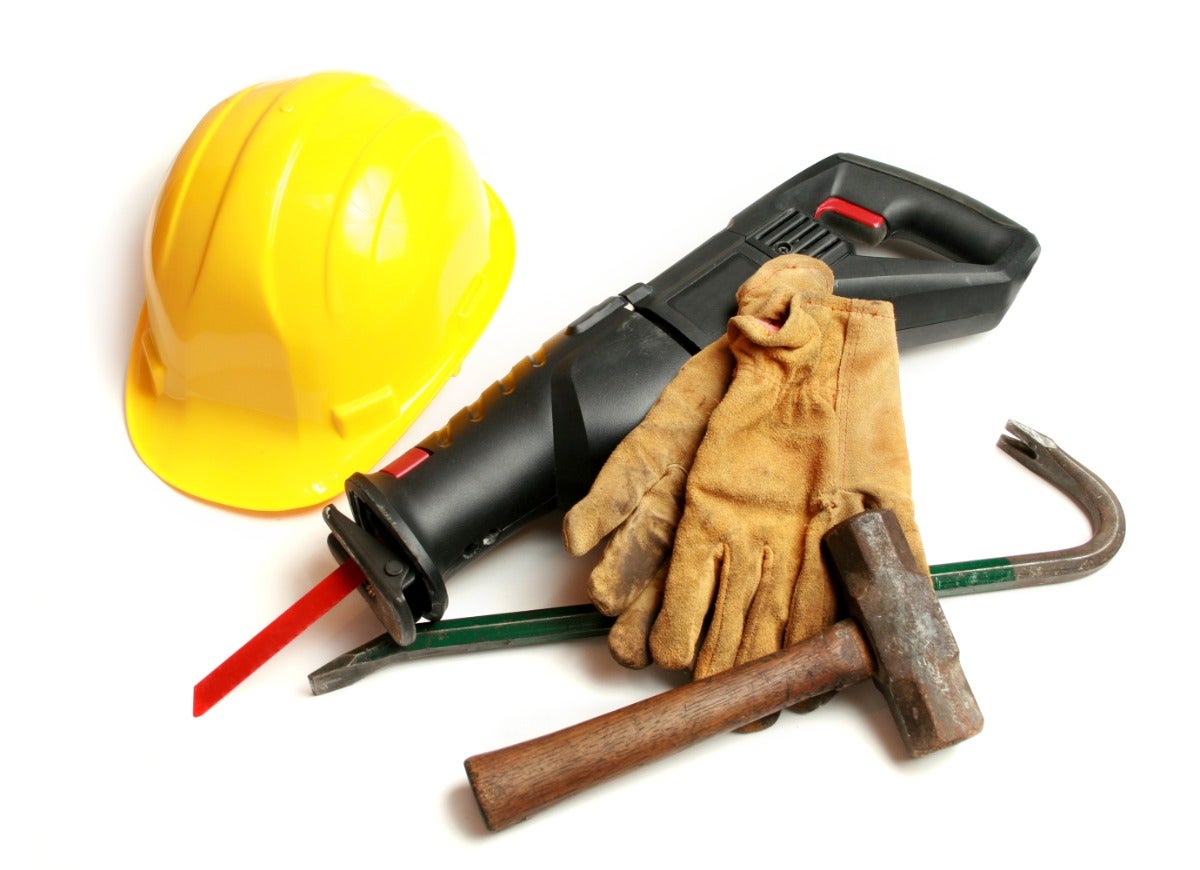
Based on what you know about the space you’re working in, make sure you have all the tools you need before you start tearing into walls. Some common demolition tools include pry and crow bars, hammers, cordless drills, pliers, snips, and saws, but if you’re dealing with masonry you may also need heavier-duty equipment such as a jackhammer. The last thing you want is to have to pause your demolition because you’re missing a necessary tool.
Purchase safety equipment for everyone on the job site.
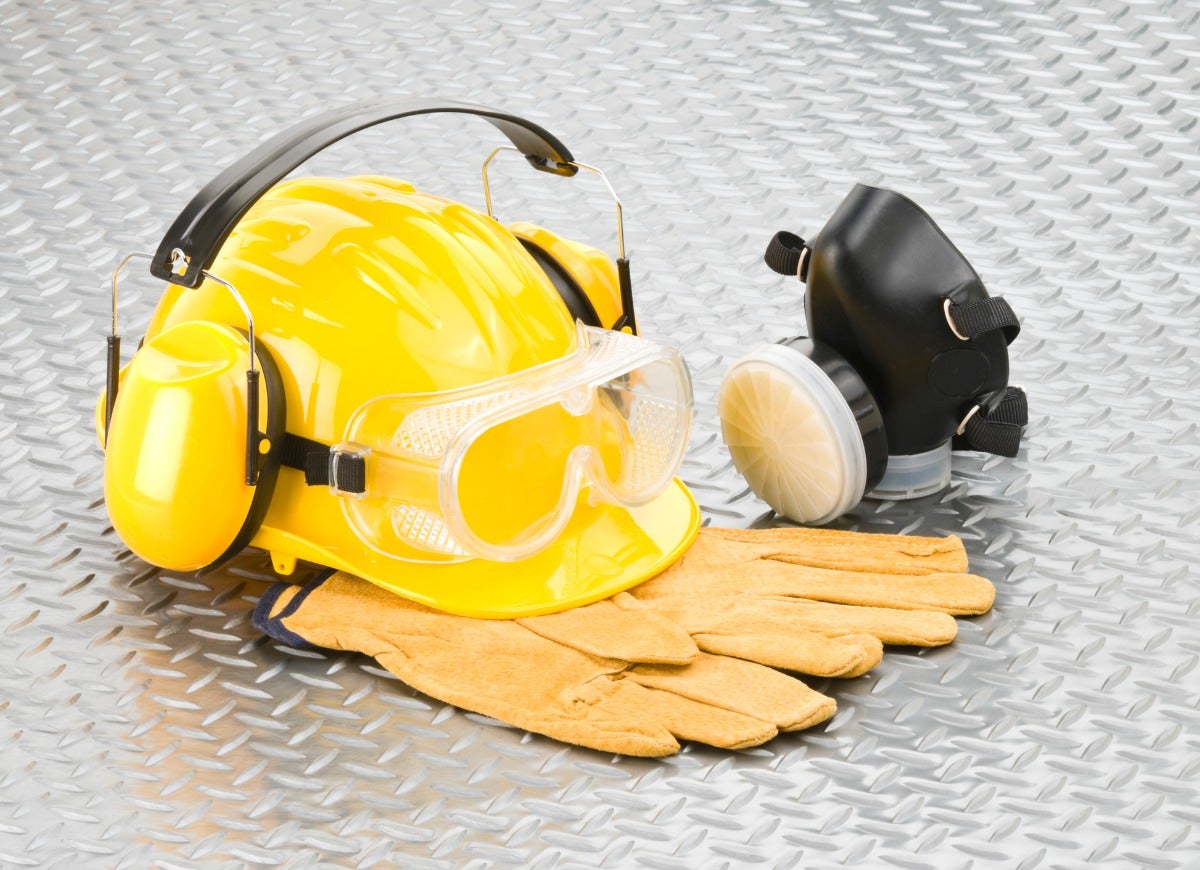
Safety is a must on any job site, and it’s especially important during a demolition. Unless they’re professional contractors, don’t assume your merry band of demo helpers will come prepared with the proper protection. Make sure you have safety glasses, work gloves, and dust masks on hand for everyone who’s coming to help out, plus a few extra of each for good measure.
Stock up on first aid supplies.
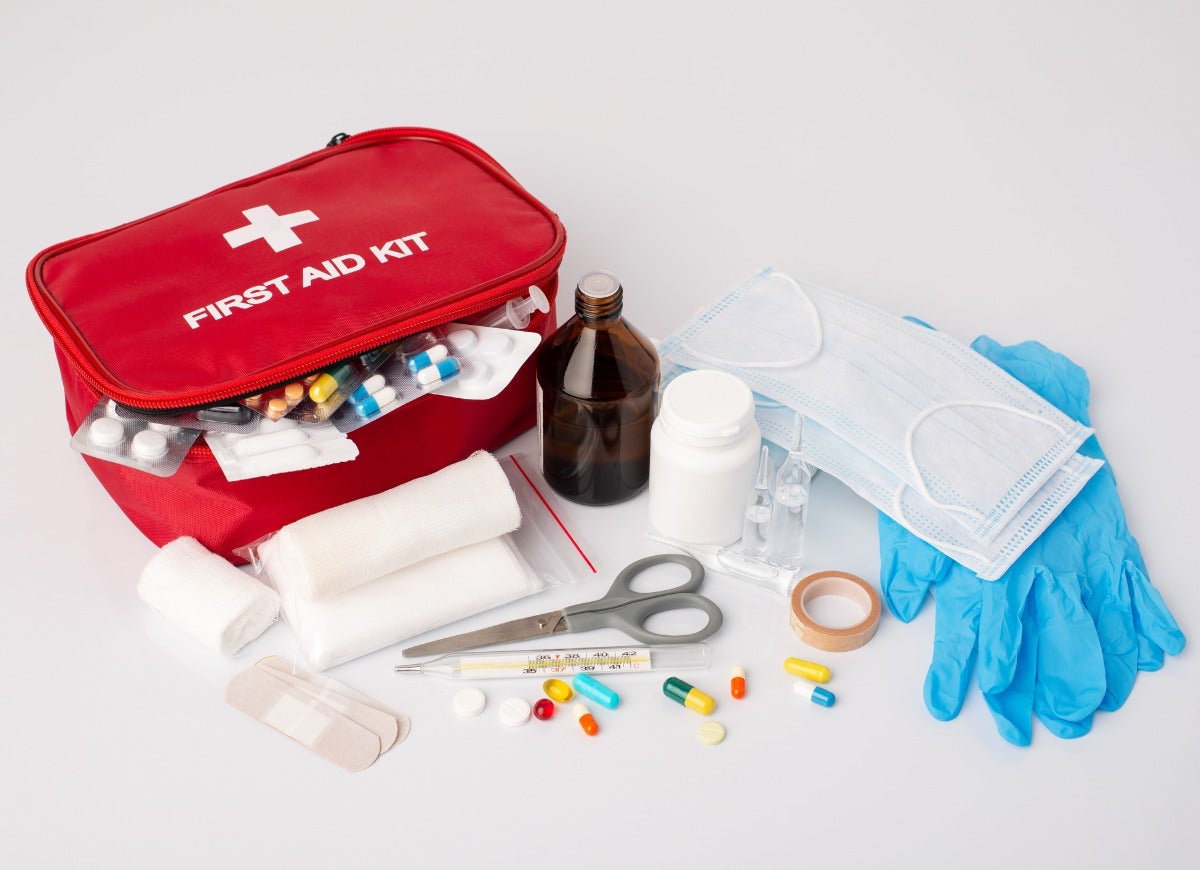
Where there are tools and flying debris, there is the chance that someone might get hurt. Minor cuts and scrapes are to be expected during demolition, so be sure to have a well-stocked first aid kit with bandages, gauze, antiseptic wipes, and antibiotic ointment. It’s also good to know where the nearest urgent care clinic and/or emergency room is located, just in case something more serious happens.
Related: The Ultimate Bug-Out Bag List: 30 Emergency Essentials for When Disaster Strikes
Give your neighbors a heads-up.

From the whir of power tools to the crash of broken drywall and glass, demo day will make a lot of noise. As a courtesy, it’s a good idea to alert your neighbors ahead of time so they can plan accordingly, particularly if they work from home. While it’s hard to control the noise level of your demolition project, being a good neighbor about it can go a long way.
Have a dumpster on site the night before you start swinging hammers.

Plan ahead and ensure a proper-sized dumpster arrives on site before any demolition begins. Even small demos can generate a large amount of construction debris, and you’ll be thankful to have a place to put it all once you get going. If you wait to order a dumpster until after you see how much trash you have, you’ll have to move it all twice: once out of the demolition area and once into the dumpster.
Spread out.
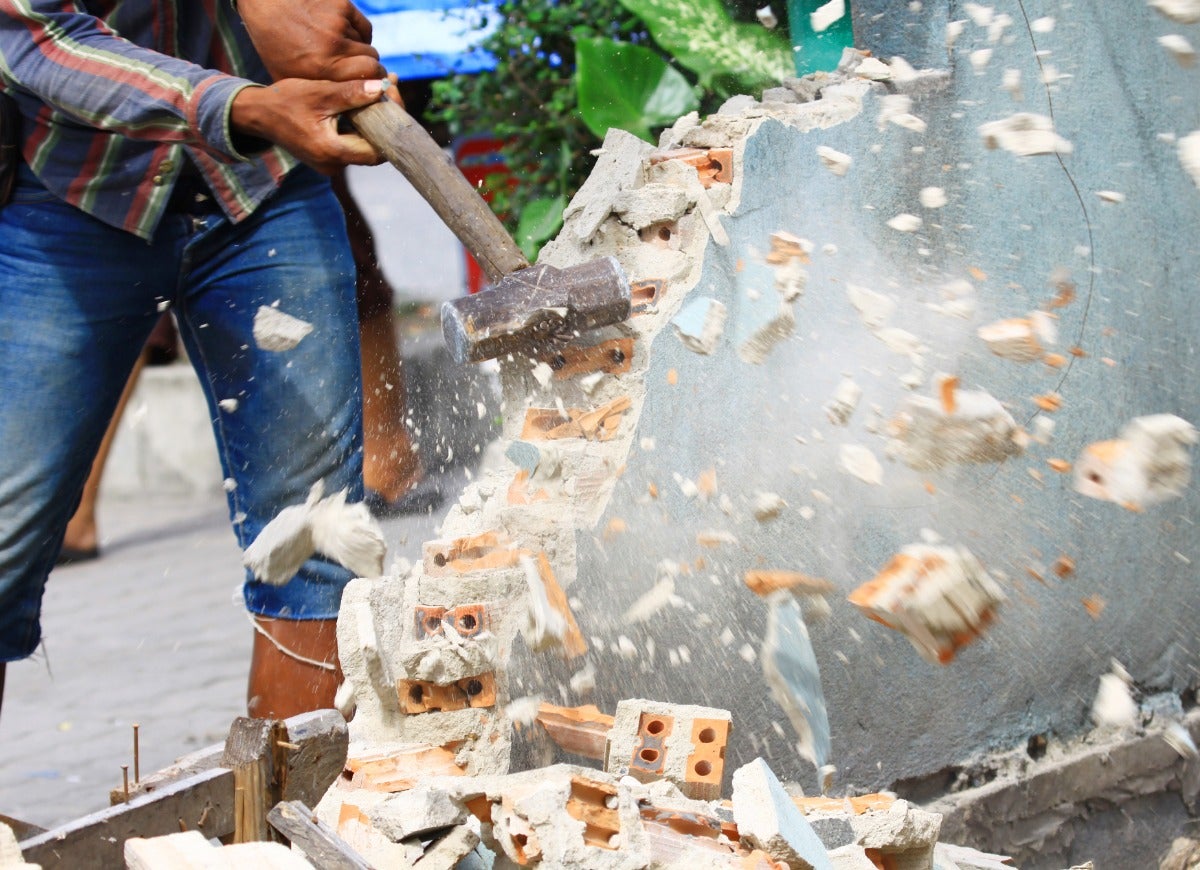
If there are multiple people involved in the demolition, make sure everyone has plenty of room to spread out and get a full range of motion with their tools. Working too close together during a demo only creates the potential for accidents. In tight areas like bathrooms, you may need to alternate and have one person working in the space at a time.
Appoint a clean-up crew.
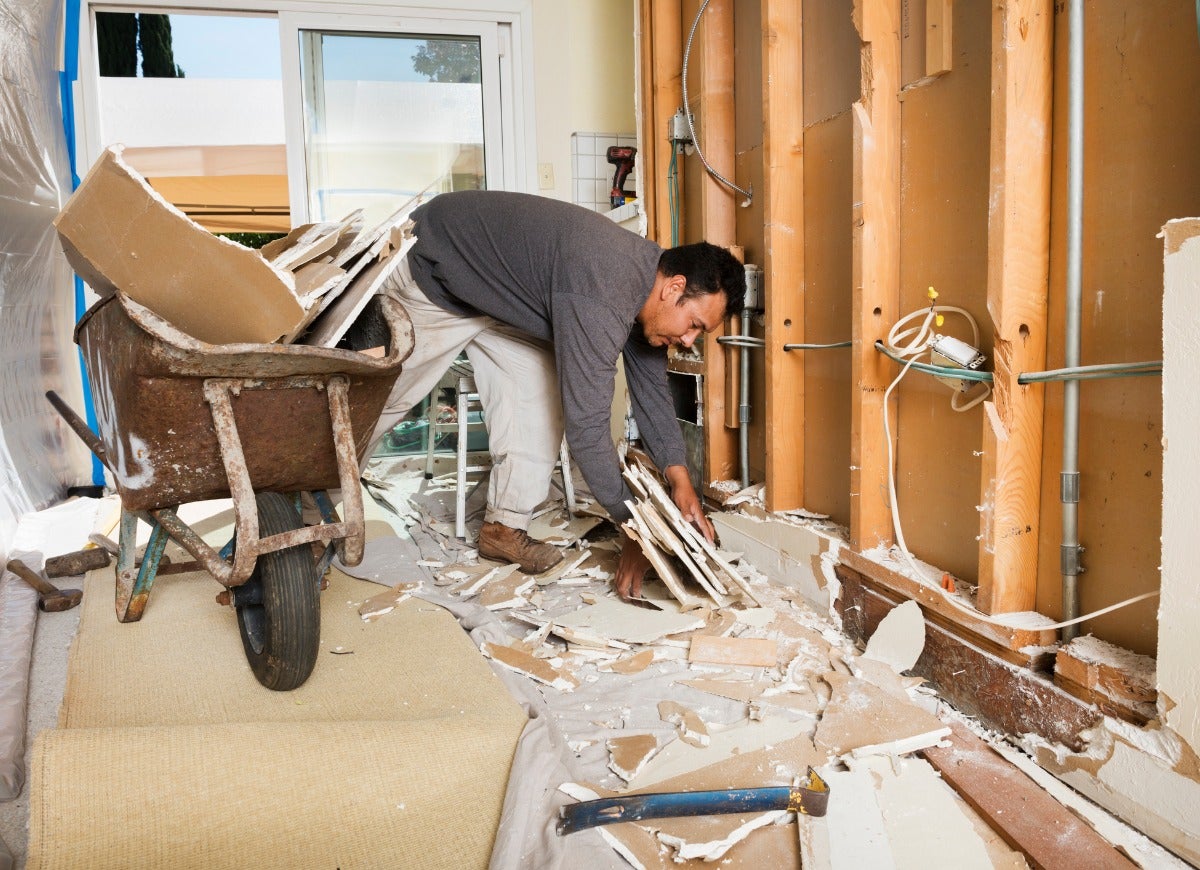
Everybody wants a chance to bust up some walls and fixtures, but it’s just as important to have someone on cleanup duty while others are destroying sheetrock or breaking up tiles. Demo goes much quicker when someone is hauling trash out of the space throughout the day, rather than waiting to clean everything up at the end (plus, it ensures the work space never gets too cluttered). Cleanup isn’t always the most coveted job, so take turns and share the burden with your demo crew.
Order extra food and have plenty of water on site.

There’s nothing like a good demolition to get the heart pumping and work up an appetite. When it comes time to feed your helpers, make sure you have a little extra of whatever is on the menu—you can be sure it won’t go to waste! It’s also important to stay hydrated throughout the day, so pick up several cases of water bottles (or a large water jug and reusable cups) for yourself and your crew.

Everything You Need for a Lush and Healthy Lawn
Keeping your grass green and your plants thriving doesn’t just take a green thumb—it starts with the right tools and supplies.

